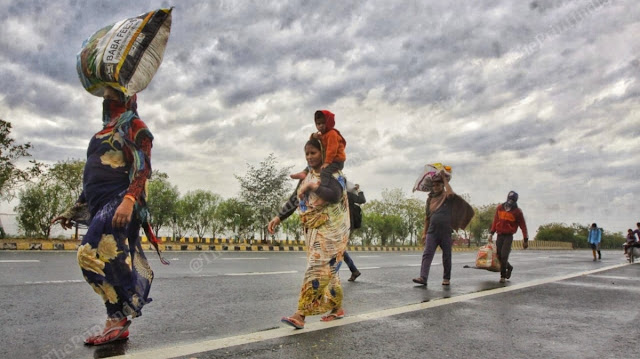Mental Health : A health and development issue
We can notice that how often we find ourselves and others saying " There's a lot of stress yaar". This word stress is not something which is treated but accepted as normal part of life, however it seriously can affect people in very abnormal ways. How often we hear stress is the right way to gauge how often we actually are facing mental health problems.
If we come up with a statistic then this issue of mental health might top the table of "most un-reported health issue". This owes to its complexity and stigmatisation.
To have it in numbers, 1 in every 4 persons may suffer some mental health problems at some point of life, few even at some phases of their life.
If you see it in historical perspective, why this mental health is a much lesser known and stigmatised issue, you might find that earlier people didn't talk of individual interests, they don't believed in any individual privacy, they were always ready to socialize but generationally and subsequently individualism has find its place and with the advent of technology, if not pandemics like COVID, the pandemic of social media tools of Whatsapp/Facebook/Instagram/Snapchat has made people already far and distant from personal touch to a fake and virtual world of all time happiness.
The term "Mental health" encompasses a wide variety of conditions and issues like stress,depression,mental disorder to name a few common of them..Its viewed as a kind of disability unfortunately.
_Areas of concern_
1) India allocates only 1% of Public health budget for mental health problems.
2) States with good district hospitals even don't offer regular pshyciatric outpatient services.
3) Lack of infrastructure in terms of resources like doctors and hospitals.
4) The stigmatisation of the person receiving mental health treatment by branding one as "Pagal" or "Asylum" carelessly.
5) Social determinants of mental health( Poverty, Gender, Social exclusion, Employment ) ignored.
_Solutions_
1) Reliable and reasonable pshyciatric counselling offered widely.
2) Greater investment in mental health services by the governments.
3) Rendering vocational training to some patients who are willing to do something but can't find that thing.
4) More emphasis on community based treatment.
5) Talks on mental health at nukkad,chouraha,block,panchayat and local levels to sensitise people about the issue.
In 2016, Modi government passed the "Mental Healthcare Bill, 2016" which has tried to offer something good in this direction like banning electro-convulsive therapy without anesthesia, holding state responsible for training mental health professionals and providing for supply of all notified essential medicines in free of cost to those diagnosed with mental health illness.
However, there's a huge gap in the letter and spirit of the bill. Its implementation is just in the minds. Activists also argue that bill does not comply with the provisions of UNCRPD.
We shall be knowing that mental disorder can exacerbate poverty, reduce life expectancy and hider the development of individual,society,nation and world.
_Hard facts_
1) 970 mn people globally suffers from mental health disorders.
2) Mental health workforce in India / lakh population include Psychiatrist (0.3), nurses (0.12), Social workers (0.07).
Let me also now list how this whole pandemic COVID-19 impacts on mental health-:
1) Fear of being infected, ill and dying.
2) Powerlessness, helplessness and boredom.
3) Relieving other traumatic events.
4) Loss of employment.
5) Isolation
Here's the way listed by a renowned mental health strategist " Dr. Vikram Patel "-:
Idea of TAR shifting - model of task shifting of treating mental health issues at the primary health centre's level.
Lets' make this "SUNDAR"
(Simplifying the message)
(Unpacking the treatment)
(Delivering it to everyone)
(Affordable and Accessible)
(Relocatinghuman-resources)






Comments
Post a Comment